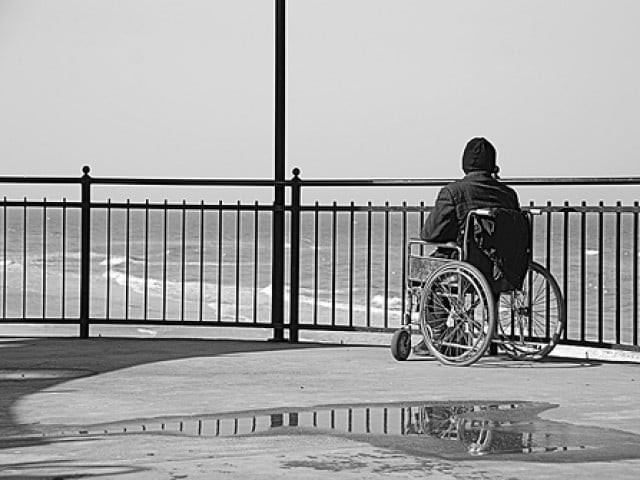Persons with disabilities: Without access, quotas are meaningless
Disabled persons struggle to achieve inclusion in face of state, social negligence.

Persons with disabilities: Without access, quotas are meaningless
“There is no law in Pakistan that protects the rights of PWDs,” said Atif Sheikh, president of the Special Talent Exchange Programme (STEP). “There is no law under which one can sue a building for not being accessible for PWDs.”
Sheikh, himself a disabled person, is a trainer and consultant on PWDs issues. His organisation works toward the empowerment of PWDs and their inclusion in mainstream Pakistani society. He was talking to The Express Tribune on the eve of the International Day of Persons with Disabilities.
“Special education, welfare, charity, discounts and quotas are all outdated concepts,” Sheikh said. “Pakistan has ratified the UN convention on the rights of the disabled, which means all of Pakistan’s laws should accommodate PWDs.”
Over one billion people live with some form of disability worldwide, according to United Nations Enable. In Pakistan, Helping Hand for Relief and Development (HHRD) puts the number at around five million, but other estimates suggest as much as 7 to 10% of the population, or around 12 to 18 million Pakistanis, might have a disability.
The 2012 International Day of Persons with Disabilities will focus on “removing barriers to create an inclusive and accessible society for all.”
Sheikh said Pakistan’s PWDs face four kinds of barriers —social attitudes, accessibility issues, communication challenges and legislative neglect.
“Most people in our society think of PWDs as beggars or suffering from an illness,” Sheikh said. “This attitude limits their social inclusion.”
The Network of Organisations Working for People with Disabilities Pakistan (NOWPDP) echoes Sheikh’s sentiments in a message on its website. “In Pakistan people with disabilities are largely absent from public space, except those who are street beggars, giving the impression that people with disabilities should be pitied and are deserving of charity.”
Even if PWDs venture out of their homes, their inclusion is made untenable by severe accessibility issues.
“PWDs cannot use public transport, they can’t access shopping malls, there is no accessible entertainment for them,” Sheikh said. “Even polling stations are not accessible.”
He said these conditions seriously affect the visibility of PWDs in the Pakistani society. Lack of sign language services, a shortage of audio services for the visually impaired, and a dearth of braille for the blind all lead to social exclusion, he said. But what is worst, perhaps, is the state’s response to the struggles of PWDs.
On November 21, a parliamentary panel on the Capital Administration and Development ministry was briefed on special education initiatives in the federal capital. The panel was told that the Directorate General of Special Education (DGSE) has a budget of Rs404.3 million for 2012-13.
DGSE officials informed legislators that the directorate was working with NADRA to issue special ID cards to PWDs, which would allow them to avail free medical treatment, 50% discount on air and train fare and duty-free import of specialised cars for PWDs, among other benefits.
The officials at the panel meeting, however, confirmed that although 2% of total jobs in federal ministries and divisions are allocated for PWDs, over half were vacant.
Sheikh said a custodian for the rights of PWDs is needed in Pakistan.
“There should be a national commission on the status of PWDs,” Sheikh said, adding that there were similar commissions for women and minorities.
Published in The Express Tribune, December 3rd, 2012.



















COMMENTS
Comments are moderated and generally will be posted if they are on-topic and not abusive.
For more information, please see our Comments FAQ